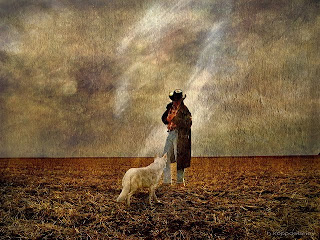Consciousness :
1. the state of being conscious; awareness of one's own existence, sensations, thoughts, surroundings, etc.
2. the thoughts and feelings, collectively, of an individual or of an aggregate of people
3. full activity of the mind and senses, as in waking life
Phenomenal consciousness refers to the qualitative, subjective, experiential, or phenomenological aspects of conscious experience, sometimes identified with qualia. To contemplate animal consciousness in this sense is to consider the possibility that there might be “something it is like” to be a member of another species. There is broad commonsense agreement that phenomenal consciousness is more likely in mammals and birds than it is in invertebrates, such as insects, crustaceans or molluscs, while reptiles, amphibians, and fish constitute an enormous grey area for most scientists and philosophers.
Self-consciousness refers to an organism's capacity for second-order representation of the organism's own mental states. Because of its second-order character (“thought about thought”) the capacity for self consciousness is closely related to questions about “theory of mind” in nonhuman animals — whether any animals are capable of attributing mental states to others.
"Conscious thinking may well be a core function of central nervous systems. For conscious animals enjoy the advantage of being able to think about alternative actions and select behavior they believe will get them what they want or help them avoid what they dislike or fear. Of course, human consciousness is astronomically more complex and versatile than any conceivable animal thinking, but the basic question addressed is whether the difference is qualitative and absolute or whether animals are conscious even though the content of their consciousness is undoubtedly limited and very likely quite different from ours." - Animal Minds, Donald R. Griffin
"This is one of the things that really separates [Integral Ecology] from a lot of the holistic approaches: not only do we say that animal interiors are important, but we actually give a lot of clear instruction as to how we might go about concretely and rigorously including and investigating animal interiors." - Sean Esbjorn-Hargens
I have been discussing in my individual meetings about the language I should use in my artist statement. Animal consciousness has a lot to due with my project and I would like to include it in my statement. My concept focuses on the barrier between human and animals, but also in the awarness we have for one another through the barriers. Is our perception of them the same as theirs is to us? Are the marks of glass something that prevents them from seeing us clearly or is it unnoticed by post humans and animals?
Radiolab

No comments:
Post a Comment